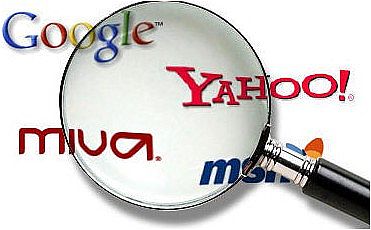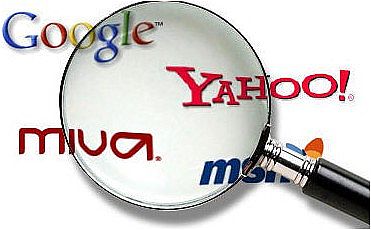 从大肆兼并收购到高调准备上市,Facebook也许会像野草一般疯长;但最新的调查显示,Google一点也不用担心它的搜索引擎广告收入。该调查周二上午由Adobe数字营销套件组件作出(Adobe公司收购它之前的名称叫作Efficient Frontier数字营销公司),该调查同时也预示了投资者在4月12日Google宣布第一季度广告收入之前,就表现出对Google每次点击广告价格下降的担忧,实在有些为时过早。
从大肆兼并收购到高调准备上市,Facebook也许会像野草一般疯长;但最新的调查显示,Google一点也不用担心它的搜索引擎广告收入。该调查周二上午由Adobe数字营销套件组件作出(Adobe公司收购它之前的名称叫作Efficient Frontier数字营销公司),该调查同时也预示了投资者在4月12日Google宣布第一季度广告收入之前,就表现出对Google每次点击广告价格下降的担忧,实在有些为时过早。
季度调查报告显示,搜索引擎上的广告是网络广告支出的主要组成部分,因为这部分广告给营销商带来的投资回报率是最大的。目前为止,美国今年花费在搜索引擎上的广告支出比1年前增长了16%。这一方面是因为搜索引擎的广告价格下降了——另一方面则是因为手机搜索引擎广告的井喷式发展,手机终端相比电脑终端成本要少很多,投资回报率则要多出11%。
当外界预测搜索引擎的广告价格将跌5%时,Google第四季度的投资者都被吓坏了,只有Adobe数字营销公司的新产品创意总监Justin Merickel看到这将使Google的点击率增加21%。他看到了这件事对Google的积极影响。“作为一个做市场营销的人,能在Google上得到的投资回报率越高,我在它上面的投资也就越多,”他说。“Google这次收入得到强势增长是有意而为的。”
尽管花在Facebook广告上的费用激增了不少,但搜索引擎上的广告支出也没有停止增加。Adobe公司研究预计今年的数据比1年前要增加93%。然而,那也只占搜索引擎支出总额的3%到5%,比手机搜索广告的还要少。
今年接下来的时间,研究预计美国搜索广告支出将增加10%到15%。因为在Yahoo的广告价格上升的同时,Google的广告价格却下降了,Merickel说道。他还认为那些更小的竞争者要面临失去市场份额的风险,因为它们的搜索广告价格比1年前上升了18%。
以下是此报告中其他一些有意思的信息:
1. 第一季度手机广告支出占所有搜索引擎支出的8%,比1年前翻了四倍;平板电脑则占了总数一半以上的份额。并且这些数字还会继续增长,因为与台式电脑相比,平板电脑搜索广告的价格要低30%。
2.与Google相比,Yahoo在搜索引擎广告投资回报率上的优势已经消失殆尽,这多亏了Google降低了广告费用,而Yahoo却将价格提高了18%。
3. Google点击率提高的主要原因在于其广告算法上,包括根据搜索关键词提供更多所谓的内部网站链接,或附加链接到相关营销商的网页上。
4. 到今年年底前,平板电脑和其他移动终端的搜索引擎广告支出总额将增加15%到20%。
5. Facebook在自助服务广告(出现在页面右侧部分的广告)上的每次点击成本率与过去的三个季度相比上升了40%。但是,随着赞助类新形式广告每次点击成本的下降,这些数字可能会出现暂时性的下降。Merickel给Facebook不断提出挑战,他说“在Facebook上人们不会有消费的冲动,就像在搜索引擎上一样”。
 Facebook may be growing like a weed, making big acquisitions, and prepping for a blockbuster IPO, but a new study indicates Google has little to fear for its search ads just yet. The study, due out Tuesday morning from Adobe’s digital marketing business unit (formerly the digital marketing firm Efficient Frontier before Adobe acquired it), also indicates that investor concern about Google’s declining price per click ahead of its first-quarter earnings to be announced April 12 may be overblown.
Facebook may be growing like a weed, making big acquisitions, and prepping for a blockbuster IPO, but a new study indicates Google has little to fear for its search ads just yet. The study, due out Tuesday morning from Adobe’s digital marketing business unit (formerly the digital marketing firm Efficient Frontier before Adobe acquired it), also indicates that investor concern about Google’s declining price per click ahead of its first-quarter earnings to be announced April 12 may be overblown.
The quarterly study shows search ads account for the majority of online ad spending because they produce the greatest return on investment for marketers. So far this year, search ad spending is up 16% in the U.S. from a year ago. Partly because of those lower click prices–in turn, partly because of a boom in mobile search ads, which cost much less than desktop search ads–ROI is up 11%.
While the 5% estimated drop in search ad prices spooked investors in Google’s fourth quarter, Justin Merickel, director of new product innovation for Adobe’s digital marketing business, says it helped boost clicks by 21%. He views that as a positive for Google. “As a marketer, the better ROI I have on Google, the more I’m going to invest,” he says. “Google is purposely generating stronger yields.”
The increase in search ad spend comes despite a huge increase in spending on Facebook ads. The Adobe study estimates that’s up 93% from a year ago. But that’s also just 3% to 5% of overall search spend, and less than mobile search ads alone.
For the rest of the year, the study reckons, search ad spend in the U.S. will rise 10% to 15%. Because Google’s prices have come down while Bing/Yahoo‘s have risen, Merickel says, the much smaller rival is at risk of losing market share because its own search ad prices have risen 18% from a year ago.
Some other interesting tidbits from the report:
* Mobile ad spending hit 8% of all search spend in the first quarter, up fourfold from a year ago. Tablets accounted for more than half of that share. That’s likely to continue because 30% lower costs per click (CPC) on tablet search ads than on desktops, despite comparable rates of conversion to a sale or other marketer goal, mean marketers will view these ads as a bargain.
* Bing/Yahoo’s advantage over Google on search ad ROI has vanished thanks to Google’s lower prices and an 18% jump in Bing/Yahoo ad prices.
* A key reason for Google’s growth in clicks is changes in its ad algorithms, including offering more so-called site links, or additional links to relevant marketer pages, in response to search queries.
* Tablets and other mobile devices are expected to reach 15% to 20% of overall search ad spending by the end of the year.
* Facebook cost-per-click rates on self-service ads (those appearing on the right side of the page) have risen 40% a quarter for the past three quarters. But with lower CPC on Sponsored Stories, a newer kind of ad, those rates may fall temporarily. And Merickel raised a continuing challenge for Facebook ads: ”There’s no intent [to buy] on Facebook like there is in search,” says Merickel.
 从大肆兼并收购到高调准备上市,Facebook也许会像野草一般疯长;但最新的调查显示,Google一点也不用担心它的搜索引擎广告收入。该调查周二上午由Adobe数字营销套件组件作出(Adobe公司收购它之前的名称叫作Efficient Frontier数字营销公司),该调查同时也预示了投资者在4月12日Google宣布第一季度广告收入之前,就表现出对Google每次点击广告价格下降的担忧,实在有些为时过早。
从大肆兼并收购到高调准备上市,Facebook也许会像野草一般疯长;但最新的调查显示,Google一点也不用担心它的搜索引擎广告收入。该调查周二上午由Adobe数字营销套件组件作出(Adobe公司收购它之前的名称叫作Efficient Frontier数字营销公司),该调查同时也预示了投资者在4月12日Google宣布第一季度广告收入之前,就表现出对Google每次点击广告价格下降的担忧,实在有些为时过早。

 Facebook may be growing like a weed, making big acquisitions, and prepping for a blockbuster IPO, but a new study indicates Google has little to fear for its search ads just yet. The study, due out Tuesday morning from Adobe’s digital marketing business unit (formerly the digital marketing firm Efficient Frontier before Adobe acquired it), also indicates that investor concern about Google’s declining price per click ahead of its first-quarter earnings to be announced April 12 may be overblown.
Facebook may be growing like a weed, making big acquisitions, and prepping for a blockbuster IPO, but a new study indicates Google has little to fear for its search ads just yet. The study, due out Tuesday morning from Adobe’s digital marketing business unit (formerly the digital marketing firm Efficient Frontier before Adobe acquired it), also indicates that investor concern about Google’s declining price per click ahead of its first-quarter earnings to be announced April 12 may be overblown.